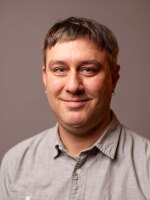Trombonist, composer and improvisor Julian Priester was born in Chicago in 1935, the youngest of six kids. Young Priester was captivated by the family piano, picking out melodies he heard from his siblings’ records.
One of Priester’s neighbors was saxophonist Eddie Harris, and the two played in a high school band led by retired army captain Walter Henry Dyett— who taught Priester the principal of positive thinking, that he’s followed ever since.
His trombone playing and eager attitude earned Priester work as a teenager in Chicago with bluesman Muddy Waters and singer Dinah Washington. Then came one of the key turning points in Priester’s life: He joined Sun Ra in one of the first Arkestra’s in early '50s Chicago. This groundbreaking avant-garde big band had no charts, just an idea or two; and that developed Priester’s listening skills, which served him well throughout his career.
Leaving Chicago to tour with Lionel Hampton in 1956, Priester soon settled in New York City, where he caught the attention of drummer Max Roach— who gave Priester his next big break: recording on several Roach albums from 1959 to 1962, including the great civil rights album We Insist: The Freedom Now Suite.
In 1960, Priester recorded his first albums as a leader – Keep Swingin’ and Spiritsville. But opportunities with more famous musicians kept him very busy in the '60s – working with John Coltrane, Sam Rivers, Ray Charles, Art Blakey and The Jazz Messengers, among others.
Priester joined the Duke Ellington band in 1969. Though he loved playing with his heroes in that band, Priester’s time with Duke wasn’t a good fit. He quit the band and joined fellow Chicagoan Herbie Hancock’s fusion group Mwandishi.
After recording three seminal albums with Hancock, Priester briefly relocated to San Francisco, recording two more albums as a leader before getting another break in the great Northwest. Cornish College of the Arts in Seattle hired Priester in 1979, providing career stability and a new community.
Through the '80s and '90s he worked with bassist Dave Holland’s band, Charlie Haden’s Liberation Music Orchestra, reunited with Sun Ra and recorded with Northwest musicians like pianist and composer Wayne Horvitz.
Priester was one of the original jazz visionaries, an adventurous searcher with incredible bebop facility who loved to play music that touched the heart. His focus on improvisation — or as he prefers, “spontaneous composition” – was guided by a focus on listening — developed over years, but starting in childhood when he discovered the power of his ears.
“Friends would come over and they would listen to listen to these records and they’d get so excited, and take the needle and put it back, play this passage over and over and over," Priester recalled in a recent KNKX interview.
"And I could go to the piano and duplicate the sounds that I heard. I didn’t know anything about music, but I could find the sounds in there. That skill stuck with me. My ears saved me from having to struggle.”
Pianist, composer, bandleader and inspiration, in recent years Julian Priester has shared his wisdom at the Seattle Jazz Fellowship’s regular “Julian Speaks” events. His musical journey ventured far beyond the borders of jazz, and continues to guide the next generation in the Northwest and around the world.








